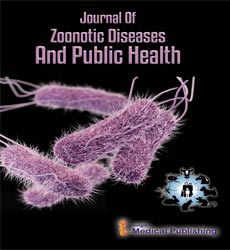A Neglected Public Health Crises: Adverse Childhood Experiences (ACEs) in South Africa â?? The Link Between Childhood Sexual Abuse as an ACE and South Africaâ??s Increasing Burden of Chronic Diseases
Abstract
In a landmark study by the Centre for Disease Control (CDC), researchers identified a strong link between adverse childhood experiences (ACEs) and the likelihood of adults developing chronic diseases such as asthma and depression later on in life (Felitti et al., 1998). This is because of how these adverse experiences elevate stress levels in children such that they become toxic and therefore alter brain development, DNA and gene-expression, as well as other important bodily functions important for healthy development. In this study, participants were given a questionnaire asking them if they had ever been exposed to any of the following ACEs during their childhood: psychological, physical, or sexual abuse; violence against mother; or living with household members who were substance abusers, mentally ill or suicidal, or ever imprisoned. The number of categories of these adverse childhood experiences was then compared to measures of adult risk behaviour, health status, and disease. The more ACEs a participant reported to have experienced, the higher the chances of developing chronic diseases (Felitti et al., 1998). South Africa (SA) has a major crisis of Gender-based Violence on its hands. As a result, young children and adolescents continue to be on the receiving end of the violence and abuse perpetuated towards the vulnerable. One of the major forms of abuse includes sexual abuse. The Optimus Study (Ward, Artz, Leoschut, Kassanjee & Burton, 2018) conducted in SA sought to capture a picture of what the sexual abuse and maltreatment of children in the country looks like. The study was done using a population survey that was conducted with a sample of 15- to 17-year-old adolescents recruited nationally from schools (4 086 participants) as well as households (5 631 participants). The study ultimately found that a total of at least 784 967 young people in SA have been the victims of sexual abuse by the age of 17 years. A total of 351 214 cases of sexual abuse had occurred among 15- to 17-year-olds in the year 2018 alone. The number is likely to have increased significantly during COVID-19 lockdown restrictions. In addition to increasing public awareness of ACEs and their short- and long-term effects, it is important for clinical practice to employ a trauma-based approach when dealing with children and adolescents who are ill. This allows for the root of the symptoms to be treated, especially with the ACEs study having shown that even behavioural problems can have a root biological cause and vice-versa. This would prevent repetitive occurrence of acute illness as well as long-term damage to health i.e., chronic diseases, an ever-increasing burden on the health system of the country and overall economy of the country.
Open Access Journals
- Aquaculture & Veterinary Science
- Chemistry & Chemical Sciences
- Clinical Sciences
- Engineering
- General Science
- Genetics & Molecular Biology
- Health Care & Nursing
- Immunology & Microbiology
- Materials Science
- Mathematics & Physics
- Medical Sciences
- Neurology & Psychiatry
- Oncology & Cancer Science
- Pharmaceutical Sciences
